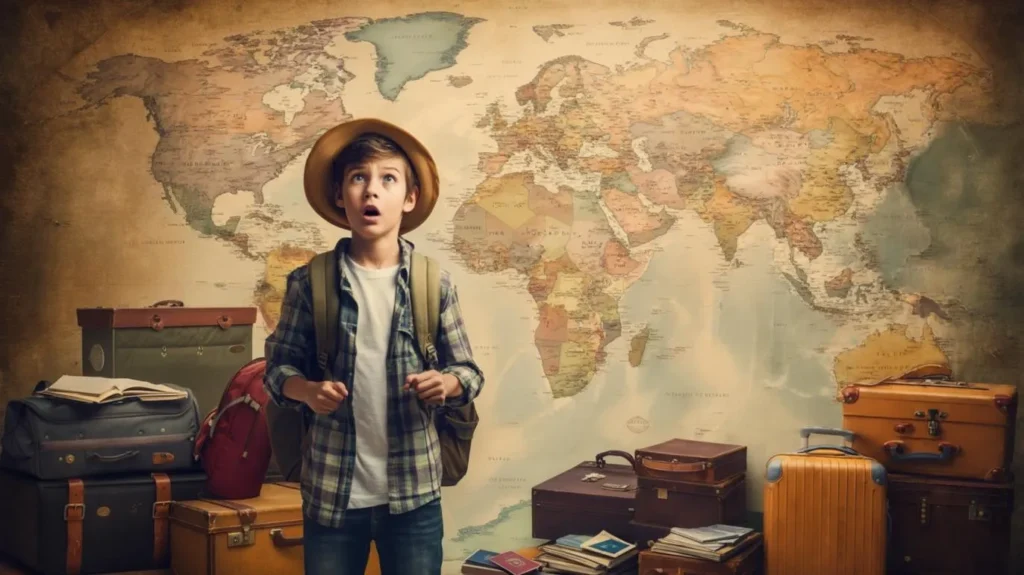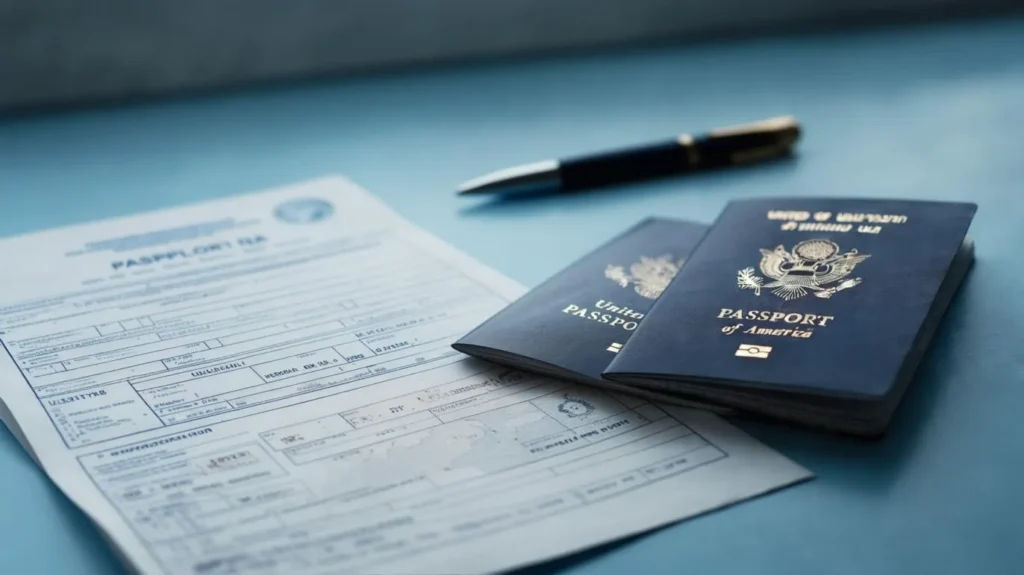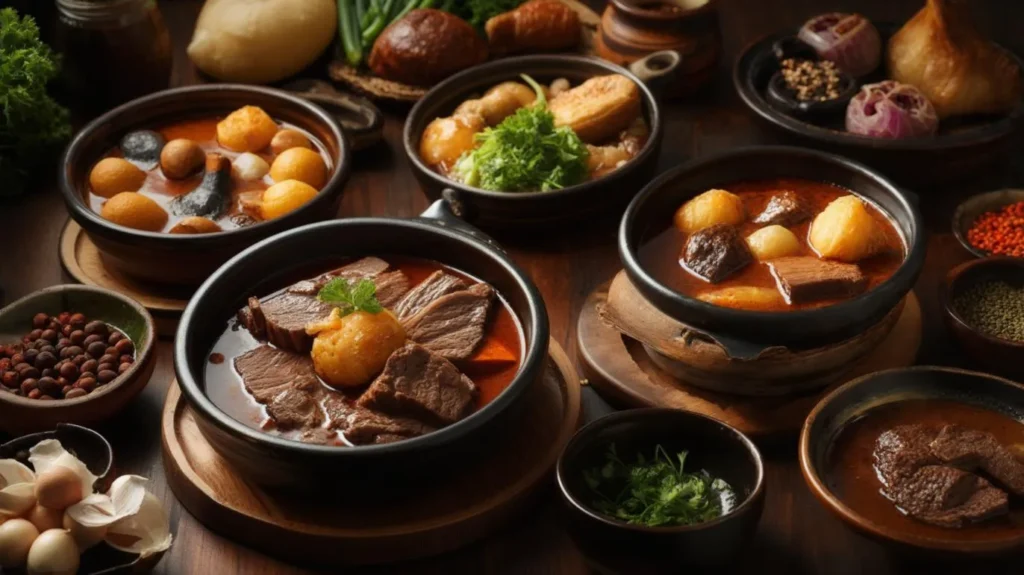Table of Contents

Traveling to another country for the first time is an exciting rite of passage for many. The thought of exploring new cultures, tasting exotic foods, and experiencing breathtaking landscapes can be exhilarating. However, it can also be daunting, especially when you’re navigating through a maze of preparations, cultural differences, and logistical challenges. In this comprehensive guide, we will delve into every aspect of international travel, ensuring that your first journey abroad is as smooth and enjoyable as possible.
Understanding the Adventure Ahead
The Psychological Aspect of First-Time Travel
Traveling to another country for the first time involves stepping outside your comfort zone and embracing the unknown. This experience can trigger a range of emotions: anticipation, excitement, joy, and even anxiety. Acknowledging these feelings is the first step in overcoming any apprehension. Take a moment to visualize what you hope to gain from this trip—new experiences, personal growth, or perhaps a greater appreciation of different cultures.
Why First-Time Travel is Important
First-time travel can be transformative. It expands your worldview and exposes you to new perspectives. Traveling fosters adaptability, resilience, and an unparalleled sense of freedom. Furthermore, the memories created during your adventures can last a lifetime, making the initial fears worth overcoming.
Preparing for Your Journey

Research Your Destination
Before setting off on your adventure, thorough research is essential. Understanding the customs, laws, and cultural practices of your destination can significantly enhance your travel experience. Start with reputable travel guides, blogs, and vlogs. Here are key areas to focus on:
- Cultural Norms: Learn about greetings, dining etiquette, and appropriate attire. Familiarizing yourself with local customs shows respect and can foster positive interactions with locals.
- Language Basics: Even a few phrases in the local language can help bridge communication gaps. Simple greetings, polite expressions, and essential phrases can go a long way in improving your travel experience.
- Safety Information: Research any travel advisories and safety protocols specific to your destination. Knowing which areas to avoid and understanding local laws are crucial for your safety.
Sorting Out Documentation

Proper documentation is vital for international travel. Ensure your passport is valid for at least six months after your planned return. Depending on your destination, you may need a visa. Apply for any required visas well in advance to avoid last-minute stress.
Additionally, consider obtaining travel insurance. This can provide peace of mind by covering unforeseen events such as trip cancellations, lost luggage, or medical emergencies.
Creating a Budget
Traveling to another country for the first time can incur various costs. Create a detailed budget that encompasses:
- Flight Costs: Book flights early to secure better deals. Use comparison sites to find the best prices.
- Accommodation: Choose accommodations that fit your budget while considering location, amenities, and safety.
- Daily Expenses: Factor in food, transportation, activities, and excursions. Research local prices to ensure you’re financially prepared.
- Emergency Fund: Always set aside a small amount for unexpected circumstances.
Packing for Success
Choosing the Right Luggage
Selecting the appropriate luggage can make your travel experience easier. Lightweight, durable suitcases or travel backpacks are ideal for first-time travelers. Ensure your bag is easy to maneuver, whether navigating through airports or riding public transport.
Packing Essentials
When traveling to another country for the first time, packing efficiently is crucial. Start with a checklist that includes:
- Weather-Appropriate Clothing: Check the climate of your destination and pack accordingly. Bring layers for varying temperatures, and consider cultural expectations in terms of dress.
- Toiletries: Bring travel-sized personal care items but leave room for local products you may buy.
- Electronics: Don’t forget chargers, adapters, and a portable battery pack to keep your devices charged.
- First-Aid Kit: Pack basic medications, band-aids, and any prescriptions you may need while abroad.
Preparing for Emergencies
It’s wise to be prepared for emergencies when traveling internationally. Keep copies of important documents such as your passport, itinerary, and travel insurance policy both digitally and physically. Having a list of local emergency contacts, such as the nearest U.S. Embassy, can be a lifesaver.
Navigating a New Country
Communication and Connectivity
Staying connected while abroad has never been easier. Before you leave, check with your mobile provider about international plans, or consider purchasing a local SIM card upon arrival. Wi-Fi availability is also worth checking, as many cafes and public spaces offer free internet access.
Public Transport and Navigation
Familiarize yourself with the local transportation system. Many cities have efficient public transport networks. Download navigation apps or offline maps to help you get around. Google Maps is a handy tool for finding directions, public transit options, and nearby points of interest.
Safety and Awareness
While exploring a new country is exciting, it’s also essential to prioritize your safety. Here are some tips to keep in mind:
- Stay Aware of Your Surroundings: Maintain an acute awareness of your environment. Avoid distractions like excessive phone usage when moving through crowded areas or unfamiliar neighborhoods.
- Don’t Flash Valuables: Keep your belongings secure and private. Use a money belt or a hidden pouch for important items like your passport, cash, and credit cards.
- Trust Your Instincts: If something feels off, trust your gut. It’s better to walk away from a situation that makes you uncomfortable.
Local Culture and Etiquette
Embracing the local culture is one of the most rewarding aspects of traveling to another country for the first time. Engage in active listening and observe social norms:
- Dining Etiquette: Dining customs can vary significantly from one culture to another. In some countries, eating with your hands is acceptable, while in others, specific cutlery usage is essential.
- Understanding Tipping Practices: Tipping is not universal. Research tipping norms in your destination, as it can range from mandatory service charges to no expectation at all.
- Participating in Cultural Events: If you have the chance to attend local festivals, ceremonies, or performances, seize the opportunity! Engaging with locals during these events can deepen your cultural understanding.
Embracing New Experiences

Culinary Exploration
One of the most delightful experiences when traveling to another country for the first time is diving into the local cuisine. Be adventurous with your food choices:
- Explore Street Food: Street vendors often serve the most authentic local dishes. Make sure to choose busy stalls with high turnover to ensure freshness.
- Take a Cooking Class: Many destinations offer cooking classes, giving you the chance to learn how to prepare traditional dishes and understand the local food culture.
- Visit Local Markets: Markets provide a great atmosphere for immersing yourself in local life. Browse stalls, sample foods, and interact with vendors to gain further insights.
Engaging with Locals
Connecting with locals can greatly enhance your travel experience. Here are some strategies:
- Join Guided Tours: Participating in group tours led by locals can provide an insider’s perspective. Look for organizations that promote responsible tourism, ensuring your visit positively impacts the community.
- Use Social Media and Apps: Consider using platforms like Meetup or Couchsurfing to connect with locals. Engaging with residents can lead to unforgettable friendships and unique experiences.
- Volunteer: Engaging in volunteer opportunities can offer deep cultural exchanges and a chance to give back to the community while gaining a deeper understanding of everyday life.
Documenting Your Travels
Keeping a Travel Journal
Maintaining a travel journal is a wonderful way to document your experiences. Writing about your adventures can enhance your memories and provide a personal keepsake. Include details about the people you meet, the food you eat, and the feelings you experience.
Photography and Social Media
Capture the beauty of your travels through photography. Use social media responsibly to share your experiences without oversharing. Be mindful of privacy, both yours and that of others, when posting photos online.
Overcoming Challenges
Language Barriers
While it can be intimidating, language barriers are often bridgeable. Utilize translation apps like Google Translate, and don’t hesitate to ask locals for help. Most people appreciate when you attempt to communicate in their language, even if it’s just a simple greeting.
Cultural Misunderstandings
Cultural misunderstandings can occur, but they are often easily navigated with a bit of patience and humor. If you find yourself in a confusing situation, approach it with curiosity rather than frustration. Often, locals will appreciate your willingness to learn and laugh it off.
Jet Lag and Travel Fatigue
Traveling internationally can disrupt your sleep schedule and lead to fatigue. Here are some strategies to minimize jet lag:
- Adjust Your Schedule Before Departure: Gradually shift your asleep/wake cycle a few days before your trip to align with your destination’s time zone.
- Stay Hydrated: Drink plenty of water before, during, and after your flight to combat dehydration, which can worsen fatigue.
- Get Active Once You Arrive: Engage in physical activity upon arriving at your destination to boost energy levels and help regulate your body’s clock.
The Return Home
Reflect on Your Experience
After traveling to another country for the first time, take time to reflect on your experiences. What did you learn? How did the trip change your perspective? Reflecting helps consolidate your experiences and can inform your future travels.
Keep the Flame of Wanderlust Alive
Once you return home, consider how you can carry your experiences into your daily life. Share your stories with friends and family, and look for local events that celebrate the culture you explored. Plan your next adventure—it’s never too early to start dreaming again!
Staying Connected
Maintain contact with friends you made during your travels. Social media is a great way to stay connected with international friends, share experiences, and continue cultural exchanges.
Traveling to another country for the first time is a formative experience thatcan profoundly impact your life. With proper preparation, an open mind, and a willingness to embrace the unknown, you can turn your fears into excitement and create lasting memories that will shape your perspective for years to come.
In this guide, we have provided you with essential insights and practical advice to navigate the complexities of international travel. From understanding cultural norms and planning your itinerary to packing effectively and engaging with locals, every aspect of your journey is important in enriching your travel experience.
Key Takeaways
- Preparation is Key: Thorough research, proper documentation, and budget planning are crucial for a successful trip. Equip yourself with knowledge about your destination and ensure you have all necessary documents at hand.
- Cultural Sensitivity: Respecting the local culture, customs, and traditions can lead to more fulfilling interactions. Approach cultural differences with curiosity instead of judgement.
- Stay Safe: Prioritize your safety by staying aware of your surroundings, securing your belongings, and communicating effectively with locals. Trust your instincts when something feels off.
- Engage Fully: Dive into local experiences, whether it’s through cuisine, cultural events, or social interactions. Be adventurous and open to the unexpected.
- Keep a Record: Document your journey through journaling, photography, or social media. This reflects on your journey and provides cherished memories to look back on.
- Reflect and Learn: After your trip, take the time to reflect on your experiences and what you’ve learned. This reflection will help you grow and can guide your future travels.
The Journey Continues
Traveling to another country for the first time is not just about exploring new places; it’s about discovering yourself in the process. The skills you gain adaptability, cultural understanding, and problem solving are invaluable and will serve you well in all aspects of life.
Embrace this journey wholeheartedly, and remember that it’s perfectly normal to feel a mixture of excitement and anxiety as you embark on this profound adventure. Every traveler was once a novice, and every great adventure begins with that first step outside your door.
As you return home, let the experiences you’ve gained influence your outlook on life. Use your newfound perspectives to inspire others, engage in conversations, and remain curious about the world. The world is filled with endless opportunities waiting for you to explore—so keep traveling, learning, and connecting no matter where life takes you next.
Soon enough, your first experience of traveling to another country will bloom into a passion for exploration that can lead to many more adventures around the globe. Remember, traveling is not just about the destination—it’s about the journey and the memories created along the way.
Happy travels, and may your future adventures be filled with discovery, joy, and unforgettable moments!
